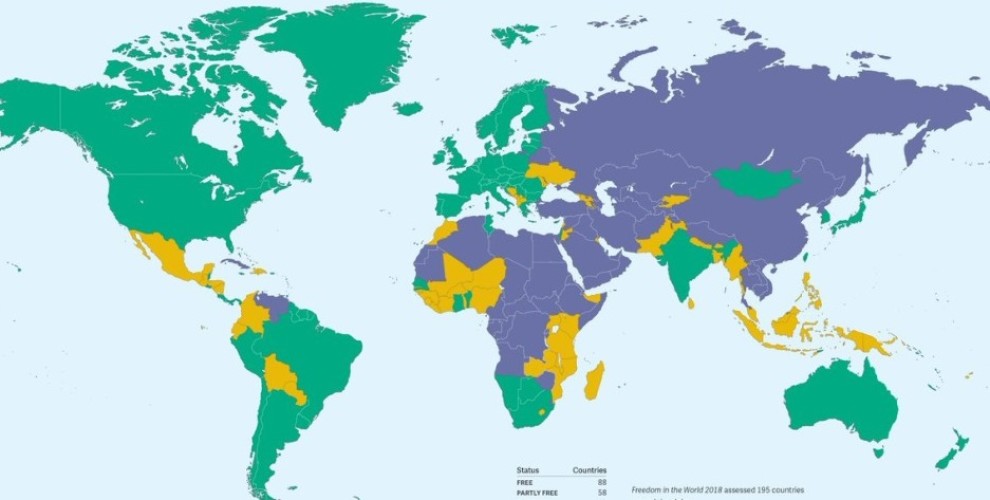Freedom House changes Turkey’s status to ‘not free’
Turkey’s status declined from Partly Free to Not Free in Freedom House’s 2017 report on civil and political freedoms in the country.
Turkey’s status declined from Partly Free to Not Free in Freedom House’s 2017 report on civil and political freedoms in the country.

On it’s “Freedom in the World 2018” report Freedom House set Turkey’s status as Not Free listing the country in the same category as Afghanistan, Myanmar, Kongo and Yemen.
“Turkey’s status declined from Partly Free to Not Free, its political rights rating declined from 4 to 5, and its civil liberties rating declined from 5 to 6 due to a deeply flawed constitutional referendum that centralized power in the presidency, the mass replacement of elected mayors with government appointees, arbitrary prosecutions of rights activists and other perceived enemies of the state, and continued purges of state employees, all of which have left citizens hesitant to express their views on sensitive topics” the report read.
According to the report, Turkish President Recep Tayyip Erdoğan’s Justice and Development Party (AKP) has shown growing contempt for political rights and civil liberties in recent years, perpetrating serious abuses in areas including minority rights, free expression, associational rights, corruption, and the rule of law.
The report pointed out the state of emergency in Turkey which allows the government to rule by decree and make decisions that dramatically undercut the rule of law.
“The government continued to take over opposition-controlled municipalities and expanded the practice to its own party by forcing independently elected AKP mayors to resign” Freedom House said.
The Organization accused Turkey of routine torture of political detainees and highlighted arrest of Osman Kavala.
“Since the attempted coup, at least 1,500 civil society organizations have been summarily closed and their property confiscated. The prosecution of journalists and closure of media outlets continues. Arrests based on messages shared via social media are common, leading to widespread self-censorship and a general chilling effect on political discourse” the report read.